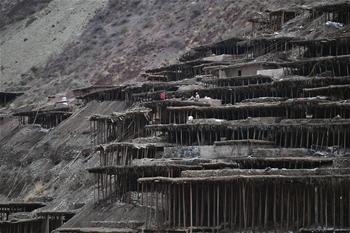LA PAZ, May 23 (Xinhua) -- Experts agree that Bolivia's biodiversity is facing challenges from climate change and deforestation.
Juan Fernando Reyes, head of the research and preservation center at the Amazonian University of Pando, said climate change is a major threat to Bolivia's environment.
For example, he said, temperature rises can lead to a loss of water reservoir in tropical glaciers in high mountains and changes in rainfall, exacerbating both floods and droughts.
"That's why it is imperative to implement inter-institutional plans in partnership with society for the conservation of Bolivia's rich biodiversity," he added.
Reyes noted that chaotic processes of land occupation, accelerated deforestation and soil erosion to some extent heightened Bolivia's environmental vulnerability, which would have profound socioeconomic impact on the South American country.
According to a report by the Friends of Nature Foundation, Bolivia is home to 389 mammal species, 1,415 avian species, 317 reptile species, 254 amphibian species and 700 fish species.
Marking the International Day for Biological Diversity on May 22, President Evo Morales urged the Bolivian people to protect Mother Earth.
"Bolivians have a great responsibility as one of the nations with the greatest biodiversity on the planet," the president said on the social media platform Twitter on Wednesday.
Biologist and specialist on eco-social conflicts Huascar Bustillos warned that the effect of forest losses may be greater than climate change, and it's therefore a priority to stop deforestation.
Official data show deforestation in Bolivia fluctuates between 300,000 and 350,000 hectares per year, having resulted in a total loss of some 6 million hectares thus far.
"Forests play many roles, including regulating climate, protecting against risks, regulating water cycles, protecting watersheds and controlling erosion and carbon sequestration," hence they are important to the processes of adaptation to and mitigation of climate change, said Bustillos.
To tackle challenges from climate change and deforestation, the experts proposed measures including enhancing an early warning system, introducing inter-institutional coordination and raising public awareness.

















